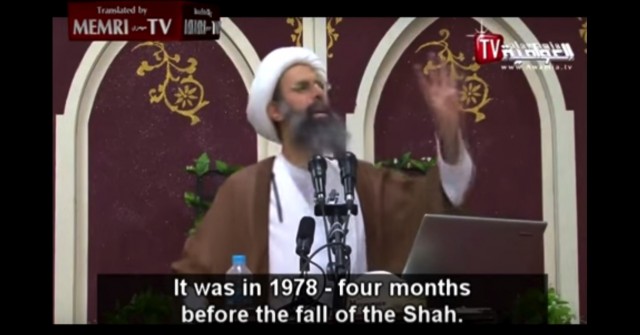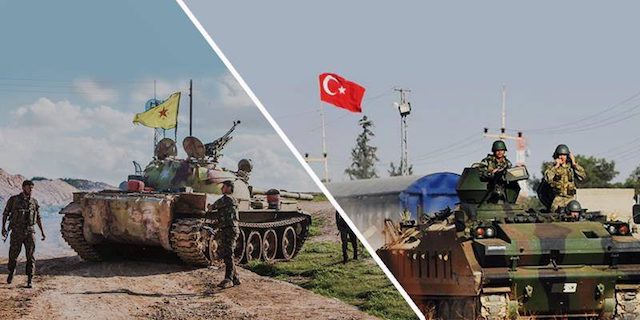Saudi Arabia finally executed Shi’ite cleric and political dissident Sheikh Nimr al-Nimr on Saturday. Regional tensions have escalated dramatically after Nimr’s death led to violent protests at the Saudi Embassy in Tehran, causing a diplomatic crisis. The question is why this happened now.
Sheikh al-Nimr was initially arrested near Qatif during a protest crackdown in July 2012. Saudi analyst Mohammed Khalid Alyaha recently insisted in The Guardian that “Nimr was a terrorist – just one of many,” but that has been the official line for years. What has changed enough for him to be executed along with forty-six other people, mostly convicted al-Qaida militants?
It is clear that Saturday’s mass execution, and the inclusion of Nimr, was shaped by Saudi concerns about domestic upheaval, and international isolation.
War is unlikely, if only because Riyadh can’t afford it. Oil prices have plummeted nearly 70% since mid-2014, owing mainly to overproduction. American shale oil producers have flooded the market since unexpected advances in hydraulic fracking. Saudi Arabia can hardly afford more than it is currently doing in Yemen, especially since budgetary shortfalls have now resulted in unprecedented austerity.
These economic conditions partially explain King Salman’s increased reliance on sectarian rhetoric. Suddenly, the world is discussing Nimr’s execution, and the attack on the Saudi Embassy in Tehran. Bahrain, Djibouti, Jordan, Sudan, and the United Arab Emirates have all either broken ties with Iran, or downgraded them. In Saudi Arabia itself, social media is ablaze with condemnations of Iran and Shi’ism (rhetorically fused).
This distracts from other details: like the fact that oil revenues have fallen 23% in the past year, pushing Riyadh to “privatise a range of sectors and economic activities,” experiment with sales taxes, and raise prices on water, electricity, and energy. It also diverts attention from awkward questions about King Salman’s failing war in Yemen, and the Saudi middle class’ links to Islamic State. At the same time, blunt sectarianism isn’t the whole story.

It is worth noting that austerity was announced on December 28, and the mass execution happened on January 2. It is hardly a coincidence that an important Shi’ite cleric was killed, along with known militants, only a few days after we learned about budget cuts that will cause mass unrest. Part of it was distraction, but it also sent a message. Saudi Arabia will neither tolerate reformist political activity, in which Sheikh al-Nimr was obviously engaged through rhetoric of human rights and fair representation, nor violent insurgency and armed revolution from an agitated populace.
Scholars like Toby Jones have discussed regional sectarianism at length, including its contemporary roots in campaigns of Saudi religious incitement, and the wider fallout of the Iraq War. There is an additional discussion to be had about how Sunni majoritarianism has accompanied the growth of free market development principles in the region. The result is that anti-Shi’a and anti-Iranian rhetoric plays well to a Saudi Arabian audience. It makes perfect sense to kill Nimr in order to craft (and reinforce) a useful sectarian narrative.
However, it also serves the purpose of establishing the parameters of illegitimate resistance in Saudi Arabia. The focus on Nimr isn’t misleading because he is a “terrorist.” The focus on Nimr is misleading because it overlooks the fact that even the rhetoric of “equal rights” has become unacceptable. The Saudi state reads Nimr’s humanitarian reformism through the same lens as it does convicted militants linked to al-Qaida and Islamic State.
It is a mistake to believe, as has recently become common, that Saudi Arabia and Islamic State are equally religiously fundamentalist. There is far more diversity than Western observation would suggest. Rather, Saudi Arabia has been reestablishing the moral parameters of an increasingly religiously fundamentalist society through harsh sentences (such as lashing for blogger Raif Badawi because he “insulted Islam”) and capital punishment. The state has been executing militants, drug smugglers, and alleged witches with the same enthusiasm as it did Nimr. And it is implicitly framed by the possibilities of popular uprising and violent insurrection.
The brutality of the punishments is important for understanding their purpose. Lashes and beheadings are visceral and gory rituals. They are visibly bloody, and continue largely because of theatrical effect. King Salman wants reformists like Nimr, al-Qaeda, drug smugglers, bloggers, and accused witches to all be instinctively linked with religious weakness, and moral degeneracy with all threats to the religious Sunni citizen.
From there, the step is to link demands for substantive democracy to that same degeneracy, and for people to recall the prison sentences, lashings, and beheadings (and probably the bombings of Yemen as well) before they even begin to mobilise against the status quo.
Screenshots taken from an October 2011 speech by Nimr al-Nimr.





